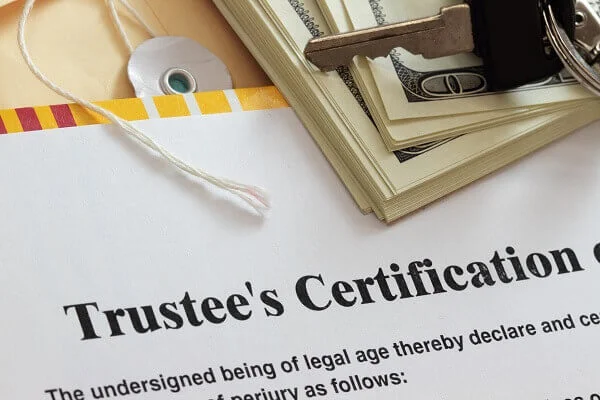In an important decision affecting California loan maintenance and foreclosure practices, the Ninth Circuit Court of Appeals, in Ho v. ReconTrust Co., N.A., 2016 U.S. App. LEXIS 18836 (9th Cir., Oct. 19, 2016), recently held that actions taken to facilitate a non-judicial foreclosure, such as sending the notice of default and notice of sale, are not attempts to collect debt as that term is defined by the Fair Debt Collection Practices Act (FDCPA). Nor is the trustee who sends the borrower such notices a “debt collector” under the FDCPA. The Ninth Circuit’s decision, to which one Judge dissented in part, is not in line with several decisions in other circuits, particularly the Fourth and Sixth.
California Lenders Had Been Monitoring the Case
Lenders in the Golden State had been anxiously awaiting a decision from the Ninth Circuit. In the underlying case, the trustee had initiated a non-judicial foreclosure on the plaintiff’s residence under California law. The only actions taken by the trustee were to record and send the legally required notices to the plaintiff/borrower. The plaintiff filed suit, however, alleging that the notice of default and notice of sale violated the FDCPA by misrepresenting the amount she owed on the mortgage loan. The district court granted the trustee’s motion to dismiss, and the plaintiff appealed.
Trustee’s Action Was Not to Recover Money
The majority of the Ninth Circuit panel found, however, that the trustee’s actions had not been an attempt to recover money, but merely had been initiated to retake and resell the property serving as collateral for the underlying loan. The majority pointed out that in California, a non-judicial foreclosure extinguishes the entire debt and does not allow for recovery of any deficiency. The important point: The trustee could recover only the security interest itself. The trustee had no right to recover any money if the security interest did not otherwise cover the balance of the unpaid loan. The majority acknowledged that a trustee’s foreclosure notice might induce a debtor to pay the debt owed the lender, or at least that portion of the debt in order to bring the debt to current status, but “that doesn’t make the guy with the tow truck a debt collector.”
Ninth Circuit Majority Drew Humorous Analogy
The majority drew a humorous analogy to the vehicle owner with a stack of unpaid parking tickets. The majority allowed that one might reasonably fear that one’s car would be impounded due to the accumulation of unpaid parking fines, but that did not turn the "the guy with the tow truck [into] a debt collector.”
Foreclosure Law Still Fraught With Difficulties
Maneuvering through the veritable ocean of state and federal rules and laws related to non-judicial foreclosures is still a daunting task for both the lender and the trustee. Having an experienced, skilled attorney and litigator at the helm can be a true advantage. The law firm of CKB VIENNA LLP has provided both legal and business consultation to mortgage lenders, trustees, and others in commercial lending for years. We have assisted lenders in managing the risks associated with the FDCPA and other complex financial rules. Our firm is skilled in all forms of litigation. Our attorneys provide preventive training and offer guidance designed to avoid the consequence and cost of litigation. CKB VIENNA has offices in Rancho Cucamonga, San Bernardino, and Los Angeles. Contact us by telephone at 909.980.1040 or complete our online form.

